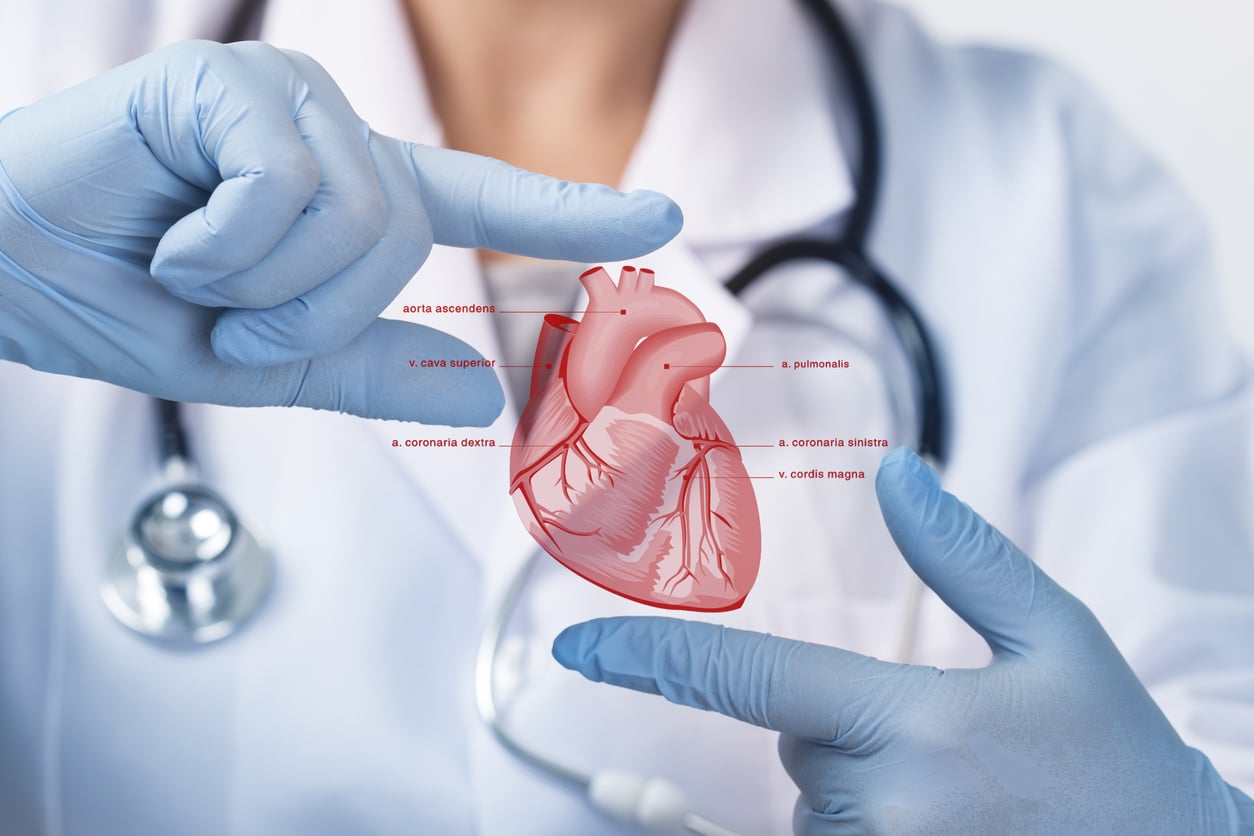Cardiology care nutrition guide: What to eat for a stronger heart
Cardiology care nutrition guide: What to eat for a stronger heart
Blog Article
Comprehending the Relevance of Cardiology in Modern Health Care Solutions
Cardiology plays an important function in modern-day health care, specifically as heart disease remains to be the leading reason for mortality worldwide. Advances in diagnostics and treatment have changed patient treatment, enabling earlier treatments and boosted outcomes. The shift in the direction of preventative cardiology encourages individuals to handle their health and wellness proactively. As innovation remains to develop, the integration of ingenious solutions might even more redefine cardiology's effect on public health and wellness, prompting a better exam of emerging patterns and their ramifications.
The Occurrence of Heart Problem and Its Effect On Public Health
Heart disease continues to be the leading reason of fatality around the world, its effect prolongs much beyond private people to impact public health systems and economic climates. The high frequency of cardiovascular disease positions a considerable pressure on health care resources, demanding enhanced funding for rehabilitation, treatment, and prevention programs. Public wellness efforts have to attend to risk elements such as excessive weight, smoking, and sedentary lifestyles, which add substantially to the rising incidence of heart conditions.Moreover, the economic problem connected with heart problem is immense, including not only direct clinical costs but also indirect costs related to shed performance and premature mortality. Communities encounter difficulties in managing these prices, usually bring about differences in medical care accessibility and end results. As the population ages and lifestyle-related threats proceed to rise, the seriousness for efficient cardiology treatments comes to be vital. Addressing heart condition is not only an issue of private health and wellness however additionally a crucial public health priority.
Advances in Heart Diagnostics and Imaging Techniques
Current developments in heart diagnostics and imaging techniques have actually reinvented the field of cardiology, enhancing the capacity to spot and keep an eye on heart conditions. Methods such as heart MRI, CT angiography, and echocardiography have actually ended up being significantly advanced, offering thorough pictures of cardiac structures and functions. These modalities enable the early recognition of problems like coronary artery illness, cardiac arrest, and valvular disorders.Moreover, developments in non-invasive diagnostics, such as wearable modern technology and remote monitoring tools, have encouraged individuals and health care companies. These devices help with real-time monitoring of heart rhythms and other vital indicators, resulting in timely treatments. In addition, artificial intelligence is being incorporated right into imaging analysis, enhancing accuracy and effectiveness in diagnosis.
Advancements in Treatment Options for Heart Issues
Current innovations in cardiology have actually caused considerable technologies in therapy options for heart problems. These consist of innovative medical strategies that boost procedural end results and emerging medicines that provide brand-new methods for therapy. As the area advances, these innovations play a crucial role in improving individual care and end results.
Advanced Surgical Techniques
Developments in medical techniques have actually changed the landscape of cardiology, providing new wish for patients with heart disease. Minimally invasive procedures, such as catheter-based interventions, have significantly lowered recuperation times and medical facility remains. Methods like robotic-assisted surgical procedure enhance accuracy, enabling doctors to navigate complex anatomical frameworks with higher precision. Moreover, innovations in imaging technology assist in real-time visualization throughout treatments, boosting end results. Transcatheter aortic shutoff substitute (TAVR) exhibits an innovation in treating aortic stenosis, enabling valve replacement without open-heart surgical procedure. Additionally, hybrid methods that combine medical and catheter-based techniques provide customized solutions for different cardiac issues. These sophisticated medical techniques not only improve person security yet additionally broaden treatment options, emphasizing the crucial function of innovation in contemporary cardiology techniques.
Emerging Medicines and Therapies
As the landscape of cardiology continues to develop, arising medicines and therapies play an essential function in enhancing treatment alternatives for heart conditions. Advancements such as novel anticoagulants and progressed lipid-lowering representatives have changed the management of heart diseases, greatly minimizing individual morbidity and mortality. Furthermore, the growth of gene therapies and regenerative medication uses appealing avenues for dealing with conditions previously deemed incurable. Medical trials are continually disclosing the efficiency of these therapies, pushing the borders of typical therapies. The assimilation of electronic health and wellness modern technologies promotes tailored medicine, permitting for customized therapy plans based on genetic and way of living variables. Collectively, these developments underscore the vibrant nature of cardiology, boosting person results and redefining standards of treatment in modern healthcare.
The Function of Preventive Cardiology in Client Treatment
Preventive cardiology plays an essential role in person treatment by focusing on the recognition of risk factors that add to heart illness. Through lifestyle modification strategies and early detection techniques, doctor can properly reduce the occurrence of cardio events - Cardiology care. This proactive method not just improves patient end results however additionally promotes lasting health
Threat Element Recognition
While heart diseases stay a leading source of morbidity and death worldwide, reliable risk variable identification works as a cornerstone of preventative cardiology. Identifying danger elements such as hypertension, hyperlipidemia, household, and diabetes mellitus background is important for very early treatment. Medical care professionals utilize numerous screening approaches to assess these factors, enabling customized precautionary steps. Additionally, recognizing a patient's way of life choices, such as smoking cigarettes and physical lack of exercise, better educates danger assessments. This comprehensive assessment allows clinicians to develop individualized care strategies intended at mitigating risks. By prioritizing danger element identification, medical care systems can enhance individual results and lower the total problem of heart diseases, ultimately adding to boosted public health and wellness approaches and resource appropriation.
Lifestyle Modification Techniques
A wide range of researches highlights the critical duty of lifestyle modification methods in reducing cardio illness threat. These methods incorporate nutritional adjustments, enhanced exercise, smoking cessation, and weight management. By embracing a heart-healthy diet rich in fruits, vegetables, entire grains, and lean proteins, individuals can decrease cholesterol degrees and blood pressure. Normal exercise enhances the heart and improves overall cardio health. In addition, quitting cigarette smoking greatly decreases the threat of cardiovascular disease and improves recuperation rates for those with current conditions. Weight administration further adds to cardio health and wellness by minimizing other danger factors such as diabetes and high blood pressure. Implementing these lifestyle changes not only advertises specific wellness however additionally functions as a foundation of preventative cardiology in person treatment.
Early Discovery Techniques
Way of living modifications considerably add to reducing cardio condition dangers, however they are most efficient when coupled with early detection techniques. Preventive cardiology stresses the value of identifying possible heart concerns prior to they intensify into serious conditions. Strategies such as blood pressure surveillance, cholesterol screening, and advanced imaging modern technologies like echocardiograms play essential roles in evaluating cardio health. Biomarkers and hereditary screening additionally enhance the accuracy of very early discovery, permitting tailored precautionary approaches. Routine heart threat analyses encourage doctor to step in proactively, potentially preventing heart attacks and strokes (Cardiology Jupiter). By integrating these very early discovery techniques into regular treatment, people can gain from timely lifestyle interventions and targeted treatments, ultimately improving and boosting outcomes high quality of life
Integrating Innovation Into Cardiology Practices
As developments in innovation continue to improve various areas, the assimilation of cutting-edge devices and systems into cardiology practices has actually come to be important for improving client care and end results. Telemedicine platforms permit cardiologists to monitor patients remotely, improving access to care while reducing the concern on medical care facilities. Wearable tools, such as smartwatches, allow continuous heart price monitoring, notifying both doctors and individuals to possible concerns in real-time. In addition, fabricated intelligence (AI) is being used to examine substantial quantities of heart data, aiding in early diagnosis and tailored therapy strategies. Advanced imaging methods, including 3D echocardiography, enhance visualization of heart structures, leading to a lot more exact treatments. Digital wellness records (EHRs) enhance individual info management, making certain that cardiologists have instant accessibility to essential data. Together, these technical developments are changing cardiology, advertising aggressive administration and boosted wellness end results for patients with cardio conditions.
The Value of Person Education and Interaction
Individual education and learning and involvement play a pivotal duty in the management of cardiovascular wellness. By equipping patients with knowledge regarding their conditions, treatment alternatives, and way of life adjustments, doctor empower people to take an active duty in their treatment. This positive method can lead to boosted adherence to prescribed drugs, nutritional modifications, and exercise regimens, ultimately lowering the risk of visit this page complications.Engagement additionally cultivates a solid patient-provider connection, encouraging open interaction and trust fund. When patients feel educated and included, they are extra likely to voice problems and ask questions, which can lead to much better scientific end results. In addition, academic sources, such as workshops or digital systems, can improve understanding and advertise self-management strategies. Overall, prioritizing client education and learning and involvement is essential for enhancing cardio wellness, improving lifestyle, and minimizing health care expenses related to cardiovascular illness.
Future Fads in Cardiology and Their Potential Influence

Frequently Asked Inquiries
What Lifestyle Adjustments Can Lower Heart Condition Danger?
The current question addresses way of living adjustments that can considerably decrease cardiovascular disease threat. Dr Garcia. Taking on a balanced diet, participating in routine exercise, keeping a healthy and balanced weight, managing stress, and staying clear of cigarette can significantly improve cardio health
Just How Can I Acknowledge Very Early Indications of Heart Problems?
Recognizing early indicators of heart issues involves tracking signs and symptoms such as upper body discomfort, shortness of breath, exhaustion, and uneven heartbeat. Timely recognition of these indicators can trigger required clinical examination and treatment for better results.
What Are the Distinctions In Between Cardiologists and Cardiac Surgeons?
The distinctions in between cardiologists and heart specialists hinge on their roles; cardiologists primarily manage and detect heart disease via non-invasive techniques, while cardiac surgeons carry out operations to deal with architectural heart problems. Each plays an important, distinct role.

How Often Should I Get My Heart Health And Wellness Checked?
The regularity of heart wellness checks varies based upon specific danger aspects. Typically, grownups must undertake evaluations every one to 2 years, while those with status quo might require more frequent assessments as suggested by medical care experts.
What Duty Does Genes Play in Heart Problem Danger?
Genes considerably influences heart problem danger, with domestic patterns showing inherited problems. Details genetics can incline individuals to high blood pressure, cholesterol issues, and other cardiovascular problems, highlighting the importance of genetic testing review in evaluating heart health. Heart disease continues to be the leading reason of death worldwide, its effect prolongs much beyond specific people to influence public health systems and economic climates. Public health initiatives should attend to danger factors such as excessive weight, smoking, and sedentary way of lives, which add considerably to the increasing incidence of heart conditions.Moreover, the economic problem associated with heart illness is enormous, including not just straight medical expenses yet additionally indirect expenses associated to shed performance and premature mortality. Precautionary cardiology plays an important function in individual treatment by concentrating on the recognition of risk elements that contribute to heart illness. Fabricated intelligence (AI) and machine discovering are enhancing diagnostics and individual tracking, making it possible for very early discovery of heart conditions. The distinctions in between cardiologists and heart surgeons lie in their roles; cardiologists mainly manage and diagnose heart conditions through non-invasive methods, while heart surgeons perform medical treatments to deal with architectural heart concerns.
Report this page